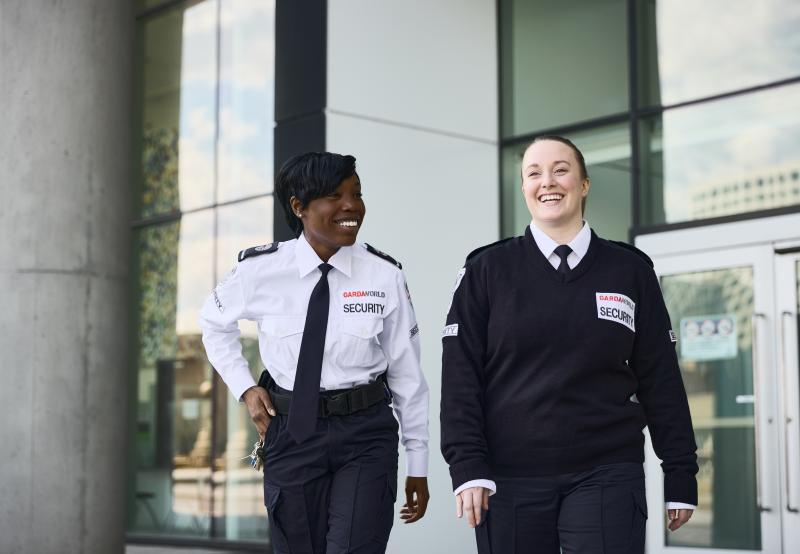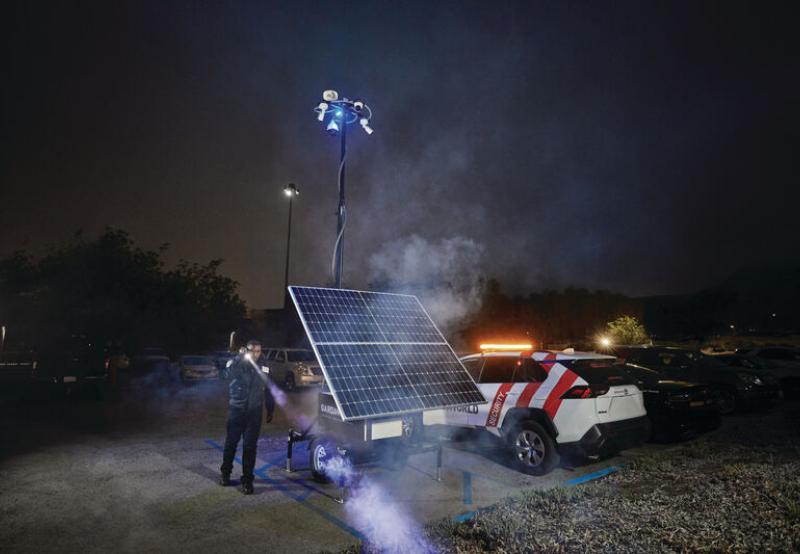
With the whirlwind of festivities happening around the holiday season, opportunistic theft tends to be more common, in both retail stores and office buildings. Office security is especially important during November and December because commercial offices experience a spike in daytime thefts during that time.
Many of these crimes are committed by experienced and confident thieves who might pose as service personnel and claim that they have a good reason to be in your office. They know that the “shoulder times” are before opening and closing hours, when there are significantly fewer employees on site, making these times good occasions to commit theft. But a lot of these crimes can be prevented.
Here are some tips for how to prevent opportunistic theft in your office building, especially during peak holiday season.
1. Set up your reception phone’s caller ID
Make sure the caller ID for the main reception phone includes the company name, floor number, and the building’s complete address. This is most likely the phone that a person would use to call 9-1-1, site security, or property management. In the event that a receptionist makes an emergency call and must leave the phone off the hook because he or she cannot speak for safety reasons, the caller ID will identify precisely who called and where to go to investigate.
2. Establish a code word for office security
Tenants who are particularly at risk should establish a code word or phrase that when said to site security or property management, means, “We need help here now!” This code should sound innocuous and blend seamlessly in a conversation. For example, “I have a package for Simon Smith” would not sound suspicious but could signal that help is needed.
3. Safely challenge any strangers in the office
Employees should be trained on how to safely interact with strangers who are not wearing a visitor badge. If employees encounter a suspicious person, they should not confront him or her, especially if they are alone. Employees should be given a code word or phrase such as, “Jane Singh called and said she will be late for her shift,” which when said to a co-worker means, “I am going to watch this guy—please call security and get our boss.”
The employee should then watch the stranger from a safe distance until his boss arrives. When employees are being trained on this procedure, they should be told to maintain surveillance of the stranger near a place of safety where they can retreat if the suspect realizes that he has been “made.” In this case, a place of safety means a room with no windows and a sturdy door with no windows, which can be locked from the inside.
4. Make use of tenant security activity scheduling
The Crime Prevention through Environmental Design (CPTED) activity scheduling principle recommends that offices only be unlocked when a significant number of guardians or employees are in place to supervise and protect the entire area. When the office population starts to decline at the end of the business day, the area should be locked and put back on access control. The tenants’ floors and the elevators serving those floors should remain on access control through the beginning of the following business day, until the tenant reception area is staffed and/or a significant number of witnesses are present to challenge, deter or report trespassers or criminals.
This principle applies to elevators, office doors, and stairwells, and the recommendation is not to use a “one size fits all” lock-up schedule, especially since modern access control technology permits customizable schedules. Also, it is possible to implement a more restrictive access control schedule specifically for November through December.
5. Dial up office security during holiday parties
Every year, we receive reports of thefts of employees’ items that occurred during a holiday party within the office. Useful countermeasures include hiring a temporary security guard to cover reception. He or she should be brought in a couple of hours early so he can be taught how to use the phone system, access control computer, and anything else that might be relevant.
In addition, implement a guest list at reception and include the name and cell number for a manager who can approve access for individuals who do not appear on the company guest list.
Lastly, prior to any office party, employees should be advised to put away and lock up any personal items that could be considered valuable or attractive to thieves.
Improved office security measures like these can make a big difference during the holiday season when it comes to loss prevention. By taking these precautions, you can help prevent, or at least reduce the potential of daytime theft in your commercial office building.








